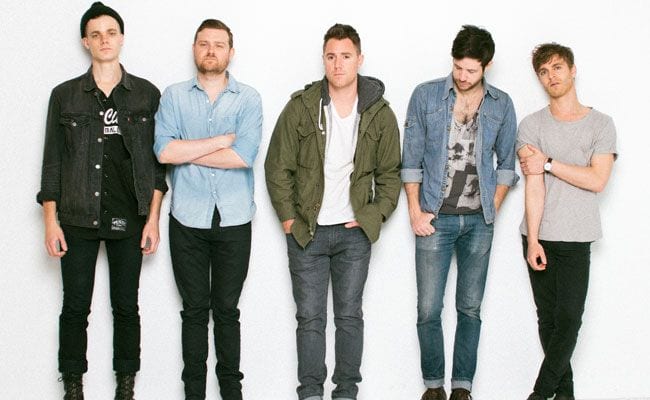
The press bio for Wild Cub begins with an epigraph from author Jonathan Lethem: “Teenage life — possibly adult life too… is all about what you want and can’t have. And then about what you receive and misuse.” So begins the elaborately wrought, thematically sprawling description of the Nashville quintet led by Keegan DeWitt and Jeremy Bullock and their debut album, Youth. The album is at one point summarized as “a loose examination of how life refines us as we move through it.” As the bio’s grandiose declarations attest, singer/songwriter DeWitt is concerned with capturing the free-spirited, insouciant moments of that eponymous phase of life, and how those moments are recalled, years later, in the sweet, mellow haze of nostalgia.
Youth was originally self-released in January 2013, and lead single “Thunder Clatter” steadily gained radio play during the year. The album is now getting a wide release via Mom + Pop, featuring new tracks “Blacktide” and “Lies”. But to be frank, this “deluxe” version is really just an excuse for re-releasing Youth after a year of increased clout and radio traction.
The opportunistic ploy, however, is not without good reason. “Thunder Clatter” is still the biggest draw on Wild Cub’s debut album. It opens with a blooming, tropical fusillade of clapping, drums, and glittering percussion, swirling together in a racket of easy rapture. It’s that rare type of song that seems to issue out of pure, spontaneous joy. Even the guitar bridge, which might otherwise risk spoiling the track’s succinct euphoria, escorts us flawlessly to the endearing coda: “I hear it call in the center of it all / You’re the love of my life”. It’s that kind of charming emotional candor, wreathed in loose, jangly arrangements, that can give indiepop a flicker of transcendence, of unselfconscious musicianship. “Colour” is another album highlight, the guitar revving like a car engine in the summer night, and then moving into pretty, dexterous figures alongside DeWitt’s aching earnestness.
The first third of Youth benefits from variability: the melodies and track progressions are all dramatically different, suggesting both authority over and independence from its ’80s, synthpop, and indie rock influences. Unfortunately, as one delves deeper into Youth, this bold variance, which initially injects the music with a restless, shape-shifting charisma, calcifies into sparse, unadorned synth lines bereft of the dazzling structures that make the early tracks so successful. Soon every track seems to begin with those banal synths and DeWitt entering stage left in pseudo-hypnotic croons, channeling a more phlegmatic Bono or a less mesmerizingly vulnerable Brandon Flowers. In other instances, promising confections like “Jonti”, with its funky lo-fi percussion and playful piano, are compromised or else outright bewildered by DeWitt’s spoken-word, Beat poet affectations. Such muddling affinities are unnecessary, it turns out, because DeWitt can go from belting out sweet, halcyon choruses to draping himself in Wild Cub’s jubilant-caravan rhythms with perfectly reasonable proficiency.
It’s clear by the end of the album that Youth toggles between its influences a bit too haphazardly instead of consolidating them into a fresh, singular sound. Should we think of Wild Cub in the “Thunder Clatter” vein—a charmingly shambolic outfit with big tropical rhythms and post-irony sweetness, or are they more new wave revivalists, as synthesizer-and-serenade tracks “Drive” and “Windows” would indicate? While Youth boasts some inarguably catchy moments, particularly when the arrangements are myriad, the second half is too remote and ersatz, not quite living up to the early tracks’ affectionate blur of winsome melodies, blithe grace notes, and ardent refrains.


![Call for Papers: All Things Reconsidered [MUSIC] May-August 2024](https://www.popmatters.com/wp-content/uploads/2024/04/all-things-reconsidered-call-music-may-2024-720x380.jpg)



